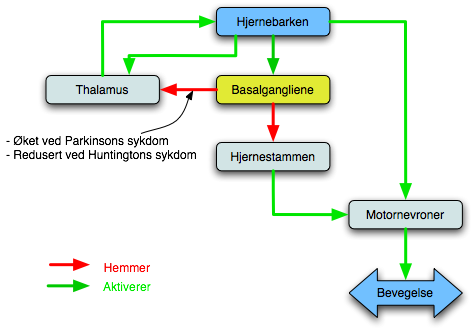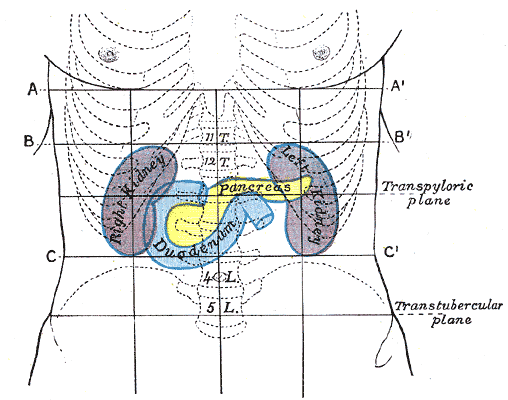Angus Liu | June 26, 2019 | FierceBiotech.com
Link between Parkinson's disease and the gut?

Public Domain, LinkMounting evidence is pointing to an association between the gut and Parkinson’s disease. New research coming out of Johns Hopkins University School of Medicine has added some weight to the connection and offered a new model for testing drugs aimed at treating the neurodegenerative disorder.
In mouse studies, Johns Hopkins scientists found that misfolded alpha-synuclein protein—which scientists believe accumulates in the brain and drives Parkinson’s—can travel from the gut to the brain. They published the findings in the journal Neuron.
Read more.
Angus Liu | June 27, 2019 | FierceBiotech.com
Treating pancreatic cancer by starving tumor cells

By Henry Vandyke Carter - Henry Gray (1918)Gray's Anatomy, Plate 1225, Public Domain, LinkScientists have been trying to stop cancer by starving tumor cells of nutrients. Now a team of researchers at Sanford Burnham Prebys Medical Discovery Institute (SBP) has offered fresh insights into how that might be done, pointing to a possible way of developing new drugs to treat pancreatic cancer.
Pancreatic tumor cells can turn to a nutrient supply route, called macropinocytosis, to survive and continue growing. Scientists hope to block this process, otherwise known as “cellular drinking,” to starve pancreatic tumors. But what molecular signaling pathway should they target?
Read more.
Press Assoc. | Aug. 14, 2019 | EveningExpress.co.uk
Aging, MS, New Discoveries

By LadyofHatsNew research indicates that increasing brain stiffness with age causes brain stem dysfunction.
But scientists have demonstrated ways to return older stem cells to a younger, healthier state, potentially affecting future treatments for multiple sclerosis (MS).
The team, based at the Wellcome-MRC Cambridge Stem Cell Institute (University of Cambridge), studied old and young rat brains to understand the impact of age-related stiffening on oligodendrocyte progenitor cells (OPCs).
These cells are vital for maintaining normal brain function, and for the regeneration of myelin – the fatty sheath that surrounds nerves and which is damaged in multiple sclerosis (MS) Read more.